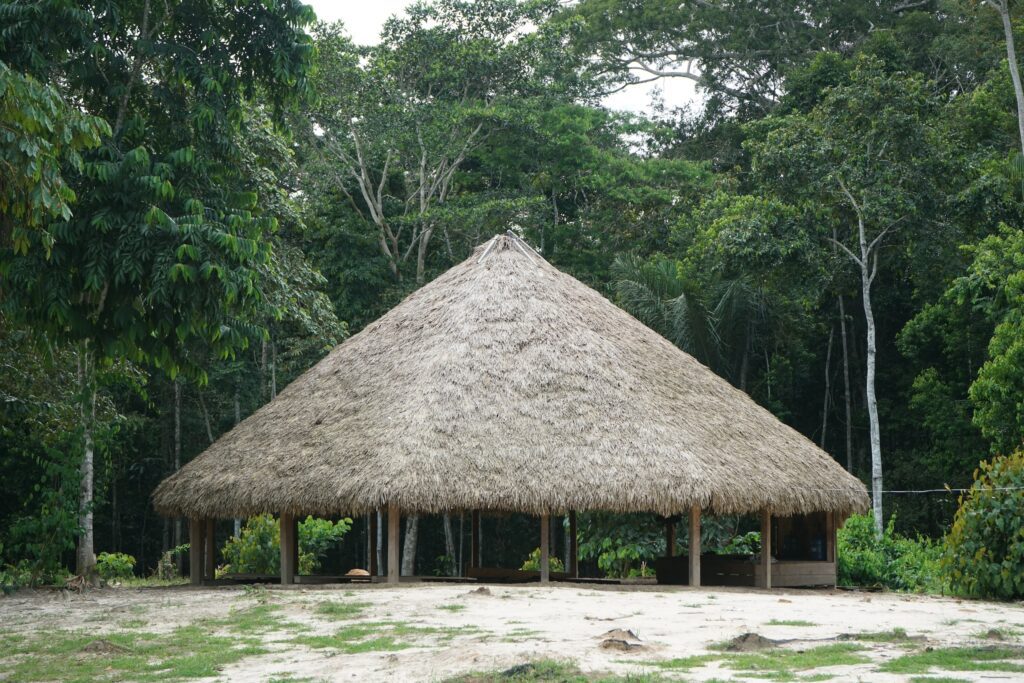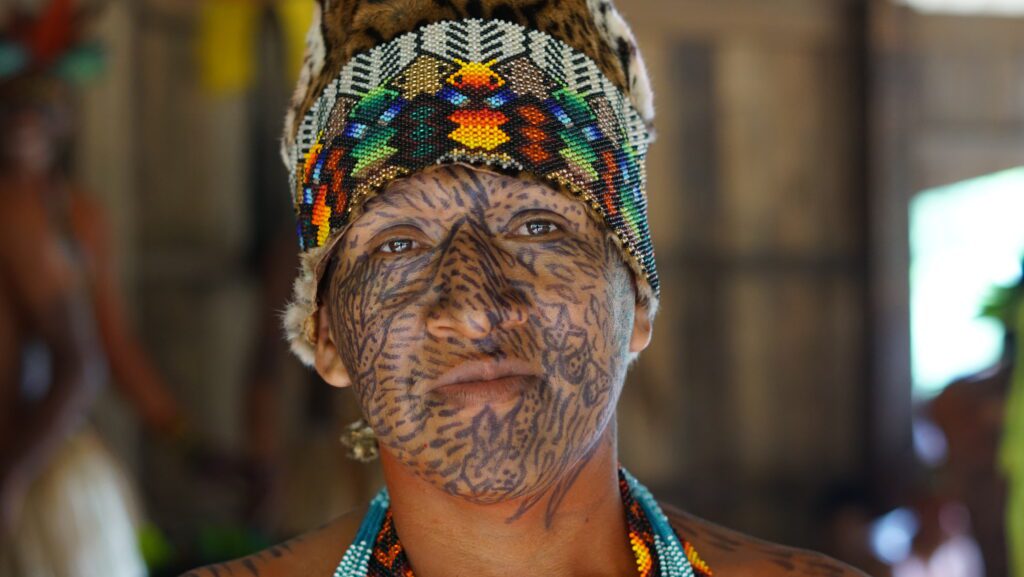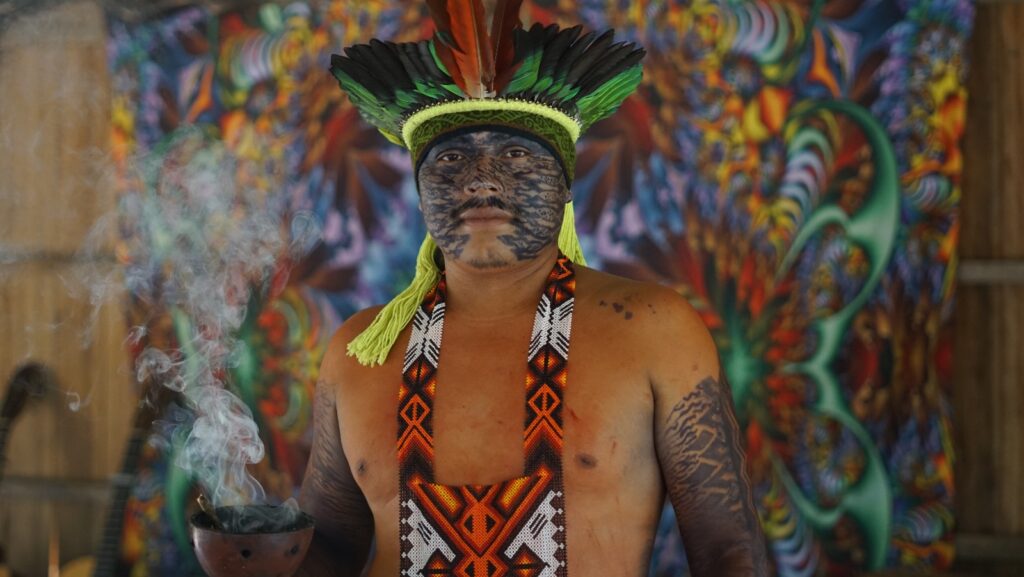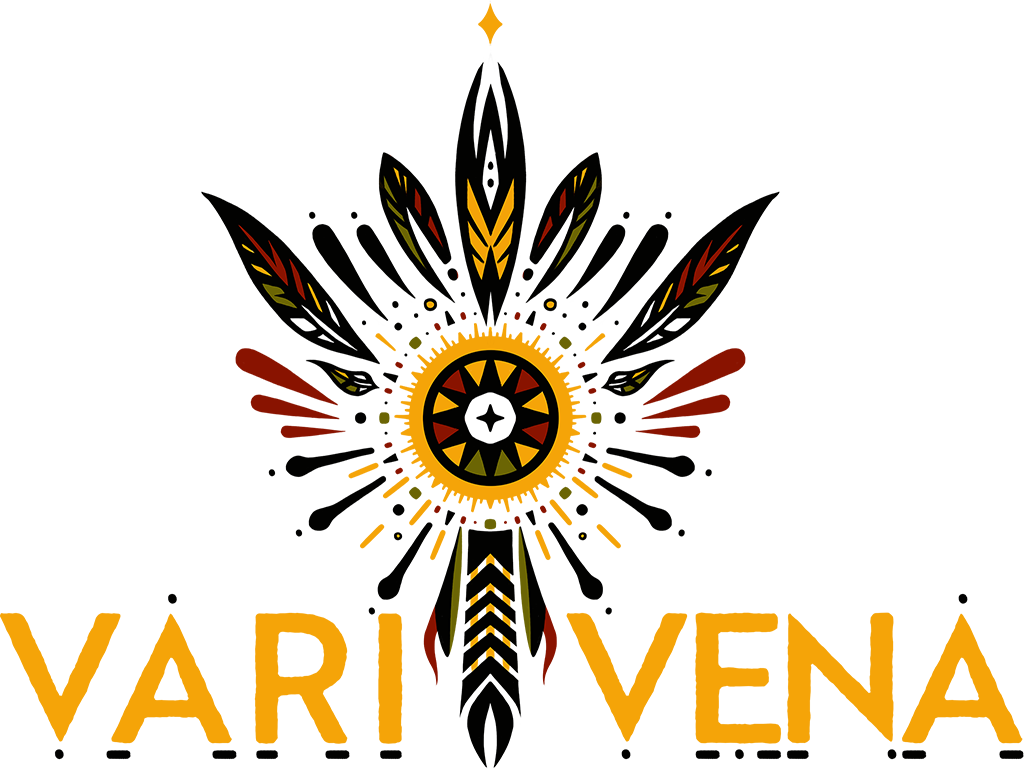MAI SHOVU TARA KAWATI PROJECT
Varî Teka Village, Varinawa Clan, Campinas Katukina Indigenous Land, State of Acre, Brazil
General Context
The Noke Koî, the “True People”
The Noke Koî, also known as the “True People”, are an indigenous people from the Amazon, located in the state of Acre, Brazil.
The Noke Koi have been guardians of the Amazon rainforest for millennia – protectors of the land, plants, animals, natural medicines, spiritual wisdom, culture and their children who will continue this legacy left by their ancestors.
There are several Noke koî villages located on the Campinas Katukina Indigenous Lands as well as along the Gregorio River. The tribe is divided into 6 clans: Kamanawa, Varinawa, Satanawa, Waninawa, Nomanawa, Nainawa
Coming from the Pano linguistic trunk, they are among the rare tribes to have preserved their language and have been able to keep their ancestral cultures through time.
For countless generations, they have lived in harmony with each other and with their environment.
Today, they face pressing threats: deforestation, governmental pressures, and the influence of the modern world.
To confront these challenges, the Maî Shuvo Tara Kawati Project (“Traditional House of the Crocodile Tara Kawati”) aims to create a symbolic space for the transmission of ancestral knowledge and intercultural encounters, uniting various nations and cultures to build a more balanced future.
The Story of the Crocodile Tara Kawati
The story of Tara Kawati is one of the most sacred for the Noke Koî and serves as the symbolic foundation of this project.
In the Noke Koî cosmogony, the tribe’s first ancestors lived underground. The Creator Koka Pino Txari, hearing their voices, liberated them from the underground world, and they began their journey in search of a new territory. Following the banks of a great river, they sought a way to cross it but couldn’t find a bridge. Two young women discovered a giant crocodile on the riverbank. Terrified, they ran to fetch the Pajé(shaman), called Romeya in the Noke Koî language.
The Pajé approached the crocodile, engaged in spiritual communication with it, and explained the history and quest of his people. The crocodile, understanding the Noke Koî’s necessity, offered its back to help them cross the river. Thus, by climbing onto Tara Kawati’s back, the Noke Koî crossed and established their new home in the Amazon rainforest.
This story embodies not only a link between the past and the future but also the symbolism of a “bridge” between worlds. Tara Kawati, the sacred crocodile, represents transformation, the emergence of a new life cycle, and the alliance between humans and nature to overcome challenges.
Similarly, the Maî Shuvo Tara Kawaticenter will serve as a bridge between generations, connecting ancient traditions with contemporary challenges and modernity, while fostering intercultural exchanges between indigenous nations and the Western world.
Project Description

The project will focus on building a multifunctional center that will serve as a space for learning, healing, and intercultural encounters. It will be designed in the shape of a crocodile, in homage to the Noke Koî story, where the crocodile helped them cross a river to reach a new territory.
1. Maî Shuvo Tara Kawati – The Traditional House
This central space will be used for:
• Traditional Ceremonies: Oral transmissions, chants, and rituals, allowing the preservation of spiritual and cultural practices.
• Classes and Workshops: Young people will learn traditional medicine, spiritual diets, arts, chants, and the art of painting and ritual
• Exchange Space: Meetings between various indigenous communities and researchers will promote the exchange of experiences, knowledge, and solutions to contemporary challenges.
2. Natural Healing Center
• Traditional Medicine: Visitors and community members will have access to care based on ancestral practices, using medicinal plants from the Amazon.
• Medicinal Garden: Cultivation of medicinal plants to preserve and transmit the therapeutic knowledge of the Amazon rainforest.
3. Accommodation for Visitors and Participants
A series of traditional huts made from sustainable materials will be built to host visitors and representatives from participating nations. These accommodations will allow immersion in local culture and provide space for healing or participation in exchange programs.
4. Space for Inter-Nation Exchange
This space will be designed to host delegations from other indigenous nations and representatives from various countries, strengthening intercultural exchanges. It will include:
• Inter-nation Meetings: Hosting representatives of different tribes and indigenous peoples to share practices, challenges, and initiatives aimed at protecting traditional knowledge and territories.
• Conferences and Workshops: Inviting experts, researchers, and indigenous rights advocates to share knowledge with the community.
The crocodile said:
“When you cross to the other side of the river, you will have positive thoughts, thoughts of joy, peace, tranquility. You must encounter a more peaceful space to live. »
THE PROJECT REPRESENTATIVES
Pina Varinawa


Pina Varinawa is one of the spiritual leaders of the NokeKoî people and the chief of the village of Varî teka.
He was initiated from a young age and his grandparents Txoki Waninawa and Peo Varinawa, two great shamans, taught him the ancestral knowledge of his people, such as medicine and sacred songs.
An artist and musician whose goal is to spread Noke Koî culture through art, Pina is a composer of music. Pina takes on the role of indigenous leader in environmental protection and climate justice by participating in national and international conferences, such as at the University of Stavanger, Norway, and at UNESCO in Paris.
PANA KAMANAWA


Panã Kamãnawa, a young leader from the Varî Teka village, embodies the deep commitment of his people, the Noke Koî, to the preservation and transmission of their ancestral knowledge.
The son and grandson of great shamans, he left his village to spread the spirituality, traditional medicine, and customs of his community, not only across Brazil but beyond its borders. A musician, healer, and bearer of the wisdom of his ancestors, he dedicates himself to the protection of the Amazon rainforest and the preservation of indigenous culture, facing the challenges of the modern world. Today, he proudly wears the maî shovu Tara Kawati, a living symbol of spiritual and cultural renewal for his people. His work aims to create a bridge between ancestral traditions and the contemporary world, fostering enriching and respectful intercultural exchange that strengthens mutual understanding and preserves these precious knowledge for future generations.
Expected Impact of the Maî Shuvo Tara Kawati Project
The Maî Shuvo Tara Kawati project brings numerous positive impacts, not only for the Noke Koî community but also for other indigenous nations, visitors, and the surrounding biodiversity. Here are the expected impacts:
1. Preservation and Transmission of Ancestral Knowledge
• Cultural Identity Strengthening
• Empowerment of Youth
2. Promotion of Intercultural Exchanges between Nations
• Bridge Between Indigenous Nations
• Dialogue with the Western World
• Knowledge Sharing
3. Strengthening Ecological and Economic Resilience
• Biodiversity Protection
• Food Autonomy and Ecosystem Preservation
• Local Economic Development
4. Support for Healing and Global Well-Being
• Holistic Healing Center
• Spiritual and Emotional Growth
PROVISIONAL BUDGET
| Category | Description | Estimated Cost (EUR) |
|---|---|---|
| Architectural studiesand plans | Design of the center and consultation with local architects | €12,000 |
| Construction materials | Local sustainable materials for construction (wood, palm leaves, etc.) | €35,000 |
| Local labor | Hiring local artisans and workers for construction | €20,000 |
| Infrastructure installation | Basic systems (water, solar energy, wastewater management) | €15,000 |
| Medicinal garden and biodiversity area | Creation and landscaping of the medicinal garden and cultivation areas | €7,000 |
| Furniture and equipment | Furniture for visitor accommodation, meeting rooms, workshops | €8,000 |
| Visitor accommodation | Construction of traditional huts for guests | €12,000 |
| Training and workshops | Educational programs for young Noke Koî and guide training | €10,000 |
| Logistics (inter-nation meetings) | Transport, food, and accommodation for representatives from other nations | €10,000 |
| Project management fees | Project management, administration, and project follow-up | €6,000 |
| Total | €125,000 |
for people in Europe
for people outside Europe
HELP US Build
The Traditional House
Within the Varinawa community, the Vari Vena project was born. In 2020, thanks to fundraising efforts, we were able to contribute to the construction of a Kupichawa, a gathering place for the community to share their practices.
You too can contribute to the construction of the traditional house, a vital location for preserving ancestral knowledge and supporting the Varî Teka village community.
